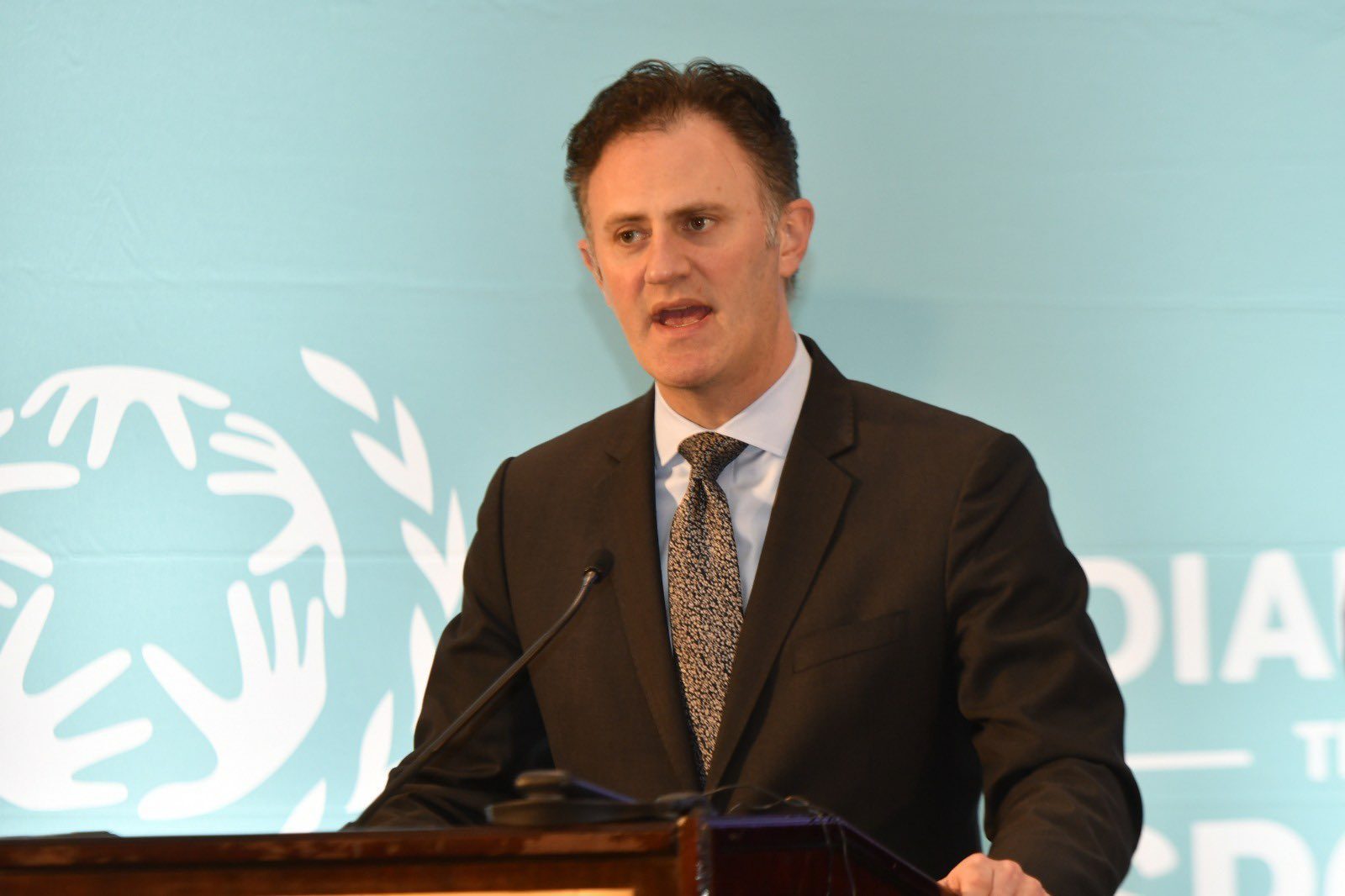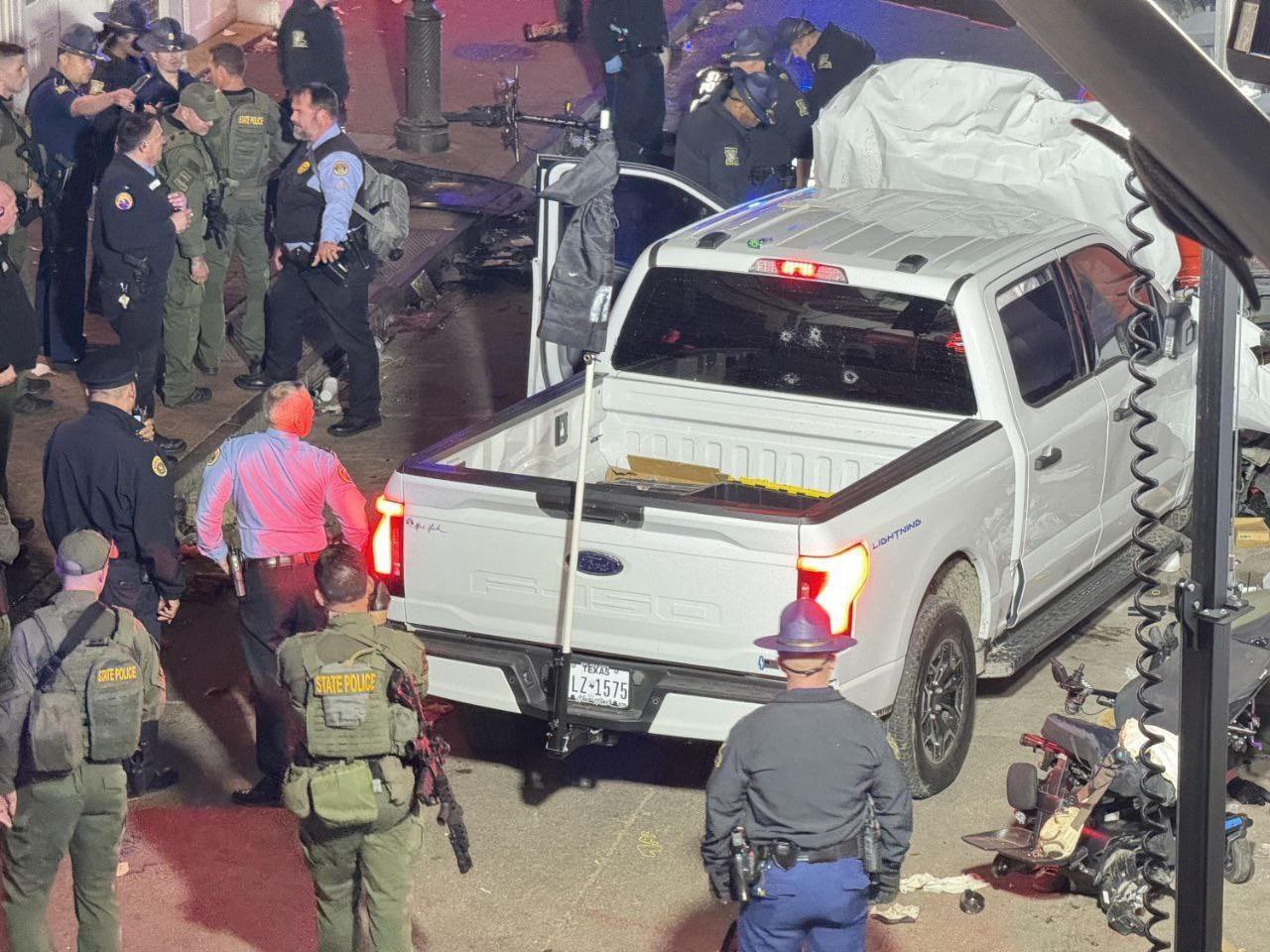Qatar is due to hold the region’s first ever World Cup event next year.
American and Qatari authorities will cooperate to combat any terrorist attacks that could potentially target the Gulf state during its hosting of the World Cup next year, a US government official told local Lusail news.
Bilateral counter-terrorism cooperation between the two allies will strive to prevent attacks during next year’s global sporting event, Ambassador Nathan Sales, the former coordinator for counter-terrorism within the US Department of State, said in an interview with the Qatari newspaper.
The Washington official said cooperation between Qatar and the US in this area is already “very strong,” pointing to a 2017 Memorandum of Understanding for cooperation in combating terrorism.
“This agreement identified a number of different areas in which the two countries can cooperate when it comes to combating terrorism, such as combating terrorist financing and preventing money laundering,” Sales added.
“Money, border security, aviation security and other reforms – these are gold standards when it comes to bilateral counter-terrorism cooperation. We’ve done a lot together over the past four or five years since this memorandum was signed between the two countries, and it provides a strong basis for continued counterterrorism cooperation between Washington and Doha,” he emphasised.
Sales noted that the agreement between the two allies is set to protect tourists and athletes during the World Cup matches next year in Qatar, pointing towards sports as “one of the things that brings people together.
“It fortifies them and gives them a sense and meaning that prevents them from going away from their families and communities through terrorists. I do not know if this is a panacea or an excellent solution for all cases, but it deserves to be one of the tools among others to help combat terrorism and extremism,” he said.
“I think that Qatar is an important player in the fight against terrorism, and it is also a military partner of the United States,” the ambassador added.
“You don’t just want to stop the terrorist, you want to stop the people who write the cheques and pay the bills for the terrorists, and both countries are doing well together in the field of border security and aviation and to ensure that we can identify any terrorist trying to cross the border and masquerade as a legitimate traveller, whether he’s a businessman or a legitimate tourist.
“Now we use a computer system and border security system to stop the bad guys and make sure they can’t get in,” he noted.
The signing of the 2017 MoU came amid heightened tensions between Doha and a number of neighbouring Gulf states that imposed an illegal air, land and sea blockade on Qatar. Saudi Arabia, the United Arab Emirates, Bahrain and Egypt had at the time accused Doha of supporting terrorism – an accusation Qatar has consistently and vehemently denied.
At the time, Qatar’s Foreign Minister Sheikh Mohammed bin Abdulrahman Al-Thani said in a statement that “Qatar, which was accused of financing terrorism, has become the first country to sign with the US a similar agreement aiming to combat terrorism financing.”
However, he stressed that the agreement had “no direct or indirect connection to the Gulf crisis or the siege imposed on Qatar.”
The GCC dispute, the worst to hit the region in years, came to an end with the signing of the Al Ula Declaration in January.
Qatar-US cooperation in Afghanistan
Speaking to Lusail newspaper, Sales stressed that Qatar is an “indispensable partner” for the US in facilitating peace talks and political negotiations with parties in the region, in particular the Taliban, which recently captured control of Afghanistan.
“Qatar has played a key role in assisting the evacuations of American citizens and others who were in danger. It has committed to being an active player in Afghanistan and continues to host this round of peace talks,” he said, noting Doha had been a channel of communication between America and Taliban when the rivals refused to hold talks.
“Qatar has always been a partner. The United States is particularly strong in combating terrorism, and I believe this partnership will continue as these talks continue,” he added.
Read also: Intra-Afghan talks in Doha stopped after Ghani fled Afghanistan: Qatari official
Qatar has hosted intra-Afghan talks since September last year, bringing members of the former Afghan government and the Taliban to the same table of negotiations. While the talks were seen as a major positive move in the Afghan peace process, they made no major progress.
However, Doha has stepped up its role since the Taliban captured control of Afghanistan in recent weeks, facilitating talks in Doha between the new Afghan rules and the rest of the world.
“Qatar is characterised by high credibility, and regarding the exchange of information between the two sides, Qatar can do that, and when America did not talk with the Taliban directly, Doha for many years was a channel for the communication of valuable information that can be exchanged, and accordingly I think that Qatar is now playing a more role actively assisting in facilitating negotiations.”
Asked about the international community’s stance on the Taliban, the ambassador said: “I think what is important in Washington is to see the evidence that shows that the Taliban is able to fulfill the commitments it made to the United States, including the fight against terrorism and evidence that the Taliban is ready to completely sever its ties with Al-Qaeda.
“It must be remembered that the Taliban harboured al-Qaeda in the late 1990s and early 2000s, and this is what led to the 9/11 attacks in the United States, and this is the reason why the United States intervened in Afghanistan in the first place.”
He stressed that the US’ main concern is ensuring that al-Qaeda never operates in Afghanistan again under the Taliban rule.
“The other thing that Washington wants from these talks is a guarantee from the Taliban that human rights and dignity are respected, especially the rights of women and girls, especially in light of the alarming reports about the expulsion of girls from schools and the prevention of a number of women from practicing their work,” he emphasised.
The comments from the ambassador came just days after members of the new interim Afghan administration met with officials from the European Union and a number of other western diplomats in Qatar in efforts to push for international legitimacy.
However, Sales said “Washington is not in a hurry to recognise a government led by the Taliban, and what the White House said is clear is to judge the Taliban by its actions and not its words, and I think they want a continuous period of fruitful work before talking about diplomatic recognition or lifting US and international sanctions on the Taliban.”
He noted that in upcoming talks, Washington will keep stressing on counter-terrorism, human rights as well as safe passage of US citizens and those under threat by the Taliban movement.
The ambassador said that diplomatic engagement is vital to collaboratively combat terrorism.
“The United States, Qatar and a number of countries cannot do this alone, but all countries need to build alliances in order to stand together against transnational terrorist groups. If the threat is cross-border, the response must be cross-border as well, and this is where diplomacy comes in.”







